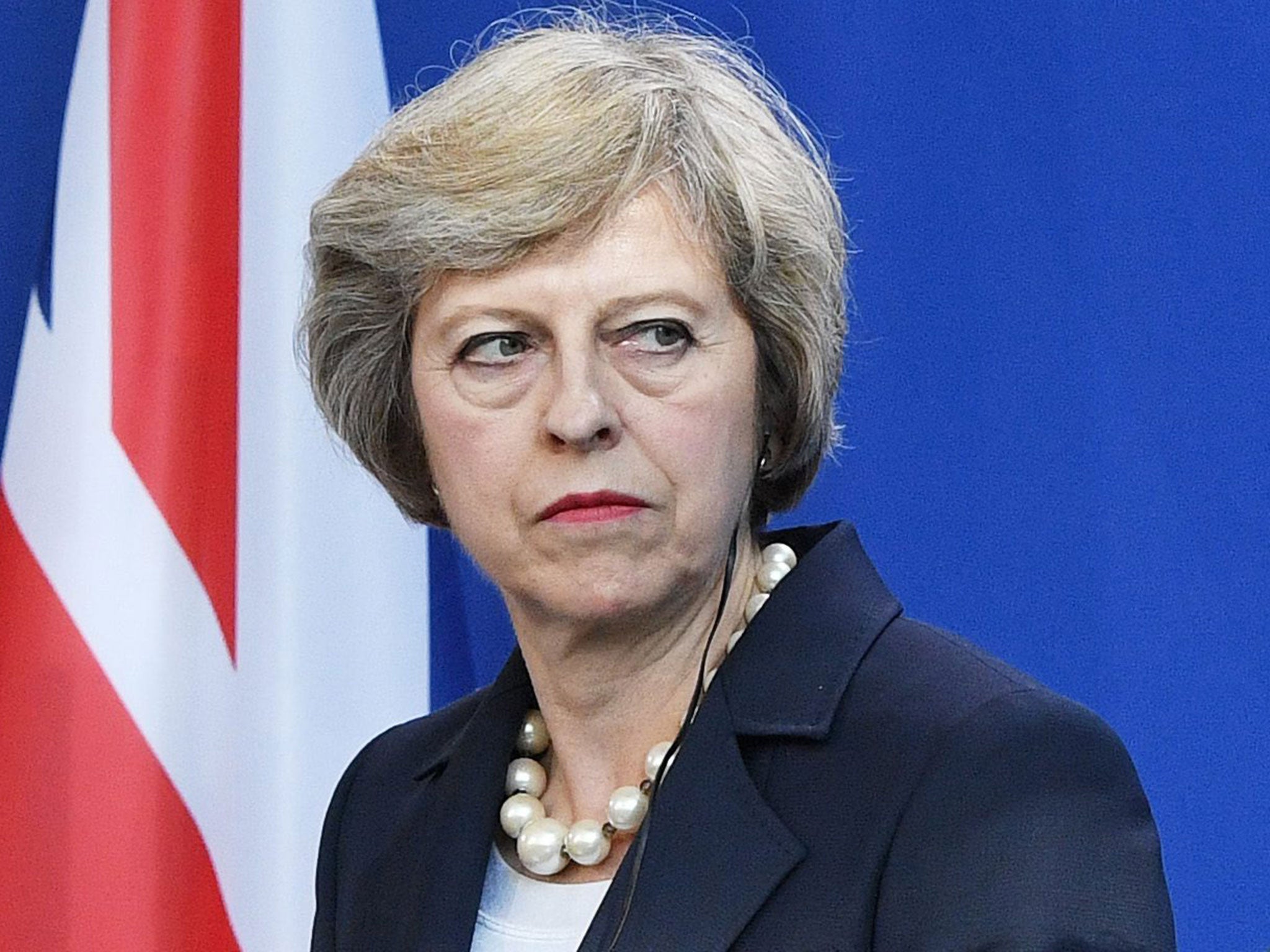'They have to sort themselves out': Why a Brexit won't happen for a very long time
Nobody is entirely sure what the terms of Britain's departure from the EU will be

Your support helps us to tell the story
From reproductive rights to climate change to Big Tech, The Independent is on the ground when the story is developing. Whether it's investigating the financials of Elon Musk's pro-Trump PAC or producing our latest documentary, 'The A Word', which shines a light on the American women fighting for reproductive rights, we know how important it is to parse out the facts from the messaging.
At such a critical moment in US history, we need reporters on the ground. Your donation allows us to keep sending journalists to speak to both sides of the story.
The Independent is trusted by Americans across the entire political spectrum. And unlike many other quality news outlets, we choose not to lock Americans out of our reporting and analysis with paywalls. We believe quality journalism should be available to everyone, paid for by those who can afford it.
Your support makes all the difference.Britain simply is not prepared to even begin negotiating the terms of a Brexit and it should not expect to officially withdraw from the European Union until at least 2020, according to various EU officials.
Prime Minister Theresa May is under pressure from Leave MPs to deliver a Brexit as soon as possible. Pro-Brexit ministers like Liam Fox and David Davis have said that Article 50 — the official two-year process of leaving the 28-nation bloc — would begin as early next year.
However, EU diplomats have ruled this out amid the reality that a number of major hurdles are likely to severely delay the process.
One of these is the fact that nobody is entirely sure what the terms of Britain's departure from the EU will be.
“They [Britain] have to sort themselves out,”an EU diplomat at the centre of Brexit preparations told the Financial Times. “They come from London and they don’t know what they want. They don’t know what their government wants, what their parliament wants. They have not prepared.”
Another senior European diplomat said: “We’ve not even worked out what all the questions are, let alone found the potential answers.“ The current lack of consensus over what ”Brexit“ actually means isn't the only issue facing May, though.
Firstly, European Parliament elections are set to take place in 2019, where a brand new assembly will be elected with the power, in theory, to veto Britain's proposed Brexit terms. This means a Brexit could face a major roadblock even if May and her government are successful in working to a fast-track timetable.
Secondly, there is the well-documented issue of just how complex the process of negotiation will be.“For all sorts of reasons we will want to finish this all before the June 2019 elections,” a senior EU official told the Financial Times. “But that will be very, very tight. The complexity is vastly underestimated unless you want to be brutal and cut off ties.”
These warnings from EU diplomats come as a Conservative peer said on Monday that the House of Lords would likely delay Article 50 being triggered if a bill was put before parliament.
“If it comes to a Bill, I think the Lords might actually delay things. I think there's a majority in the Lords for remaining,” Baroness Patience Wheatcroft told The Times.
“I would hope, while we delayed things, that there would be sufficient movement in the EU to justify putting it to the electorate, either through a general election or a second referendum.”
The task facing Theresa May in delivering a Brexit seems to be getting more difficult with each day that passes. Business Insider has already noted how Leave voters shouldn't be sure about her “Brexit means Brexit” promise and why a Brexit might not actually happen at all.
Read more:
• This chart is easy to interpret: It says we're screwed
• How Uber became the world's most valuable startup
• These 4 things could trigger the next crisis in Europe
Read the original article on Business Insider UK. © 2016. Follow Business Insider UK on Twitter.
Join our commenting forum
Join thought-provoking conversations, follow other Independent readers and see their replies
Comments